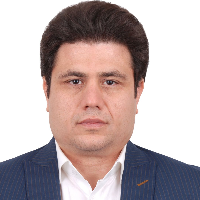Reviewing the Novelty-Thinking Methods in Shi'a Political Philosophy With an Emphasis on Shaykh Isma'il Mahallati's Views
Author(s):
Article Type:
Research/Original Article (دارای رتبه معتبر)
Abstract:
We can say that one of the most important issues in the field of political thought of Islam as well as the history of political thought in contemporary Iran is religious novelty-thinking and especially Shiite political jurisprudence in Iran. With the arrival of the new era in European history, a wave of modernism and freedom of thought in Iran, including the introduction of new political concepts and its effects on religious scholars was raised gradually. In such a situation, a range of scholars, especially the Shia jurisprudents in Iran, according to rationality laid in the new-emerging and Western ideas, reacted positively and sympathetically. The process can be mentioned as the beginning of religious novelty-thinking. The culmination of this process is the constitutional movement and the defense of some of the Shiite scholars such as Akhund Khorasani, Abdollah Mazandarani, Mirza Naeini and Sheikh Isma'il Mahalati. Their efforts to adapt Western thoughts with Islamic jurisprudence led to the presentation of a draft constitutional rule that was consistent with the principles of religious law. The present study, with a brief overview of the evolutionary process in the constitutional-seeking era, and the emphasis on the position of Sheikh Isma'il Mahallati, has sought to present an appropriate and, even though a limited, vision
Keywords:
Language:
Persian
Published:
Journal of Islamic Revolution Research, Volume:7 Issue: 25, 2018
Pages:
121 to 151
https://magiran.com/p1926133
مقالات دیگری از این نویسنده (گان)
-
Studying the Effect of Democracy Depth on Economic Growth- Environment Nexus (Iran and South Korea Comparison)
Hamid Saeidi Javadi*, Seyed Mohammad Fahimifard
Journal of Agricultural Market and Economics, -
Studying the Feasibility of Iran Economic Integration with BSEC Using Gravity Model
Hamid Saeidi Javadi *, Seyed Mohammad Fahimifard
Journal of International Political Economy Studies,


